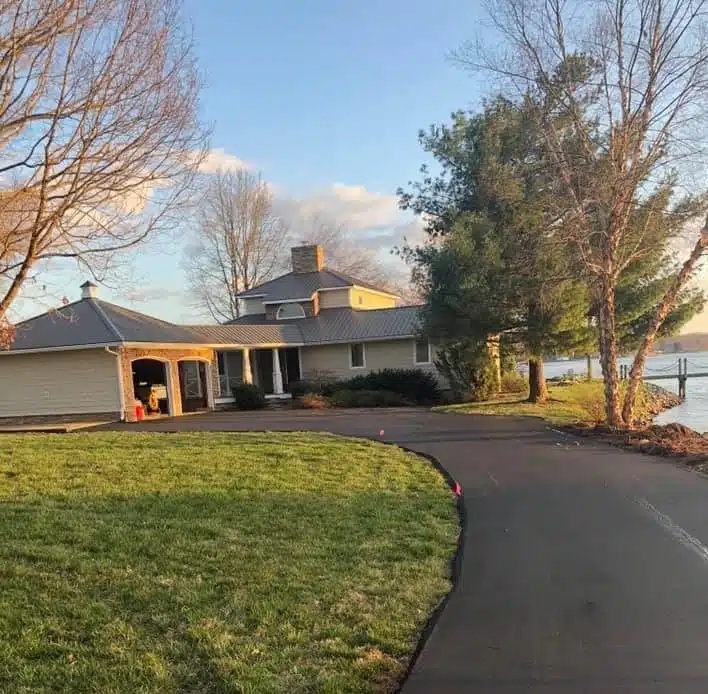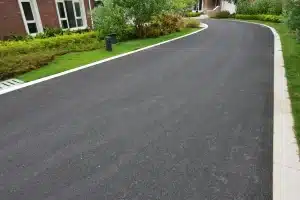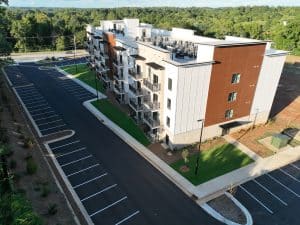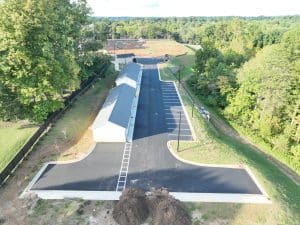What Is Involved in Paving a Private Road?
If you routinely have to drive over a private road that is unpaved, you are most likely very well aware of the issues associated with driving over a gravel or dirt type of surface. These kinds of surfaces will generally be dusty in the summertime and pretty muddy during any rainy season like spring or fall. If this isn’t enough to convince you to have a private road paved, you should consider the fact that having this private road paved will add to property values, and will make your daily commute a lot easier to deal with.
Paved roads also provide an important first impression of your home and the area you live in, and this can be very important if there comes a time when you’re preparing to sell your residence. You may also find that it’s a lot easier to keep your home clean when a nearby private road is not constantly sending dust and debris inside whenever the wind picks up. Here are some things you should be aware of when you’re considering having a private road paved.
Work with an experienced paving contractor
The first step in the process is to contact an experienced paving contractor so that you can begin discussing the scope of the project. When you find an experienced and knowledgeable paving contractor, they will be able to assess the current condition of your private road and tell you what needs to be done in order to have it fully paved.
This will always depend on the existing condition of your private road. For instance, if you already have a well-constructed gravel road, that can provide an ideal base for paving the road, and you will save a step by not having to install a gravel underlayment. After this, there are a number of paving steps that might be necessary, and your contractor will advise you of what some of these options will be.
Consider all options
In order to have your private road paved, it might be necessary to have the private road mounted so as to give it the proper shape, it might be necessary to have it graded so it can be smooth and level, and it might be necessary to aggregate the road so that it can become stabilized by soil, limestone, or concrete. Not all of these steps will be necessary, but your contractor will be able to explain to you the value of having each one of these steps performed. After that, you’ll have to decide whether or not the cost justifies having the specific step included in your paving process.
Obtain an estimate
Next, you should obtain a formal estimate from your paving contractor, so there are no surprises at the end of the project. This will provide a reference which both of you can use, in the event that there are any cost overruns that occur, and which you have not authorized. If you fail to obtain a solid estimate from your paving contractor, you’ll have no way of knowing what the eventual cost would be, and this would open the door for an unscrupulous contractor to overcharge you.
Be aware of increased home values
Anytime you convert an unpaved private road into a paved one, it will invariably increase the value of all homes which are accessed by that private road. This only stands to reason, because traffic flow will be much easier in that area, and all homes will be far more accessible than they previously were via the dirt road. Anyone looking to purchase a home in your neighborhood will much prefer to have an appealing paved road in place, rather than a dusty, dirty unpaved road which can be seasonally difficult to drive over.
Take homeowner associations into account
If you have a homeowner’s association active in your area, it would be well worth your while to consult with that organization, so they’re aware of your plans to pave the private road. It would be hard to imagine they would disapprove of the step since it would add value to all their homes as well as improving access. However, it’s always best to be safe rather than sorry, so you should apprise them of your plans beforehand. They may even want to contribute to the cost of having the road paved, and that would definitely be to your benefit.







